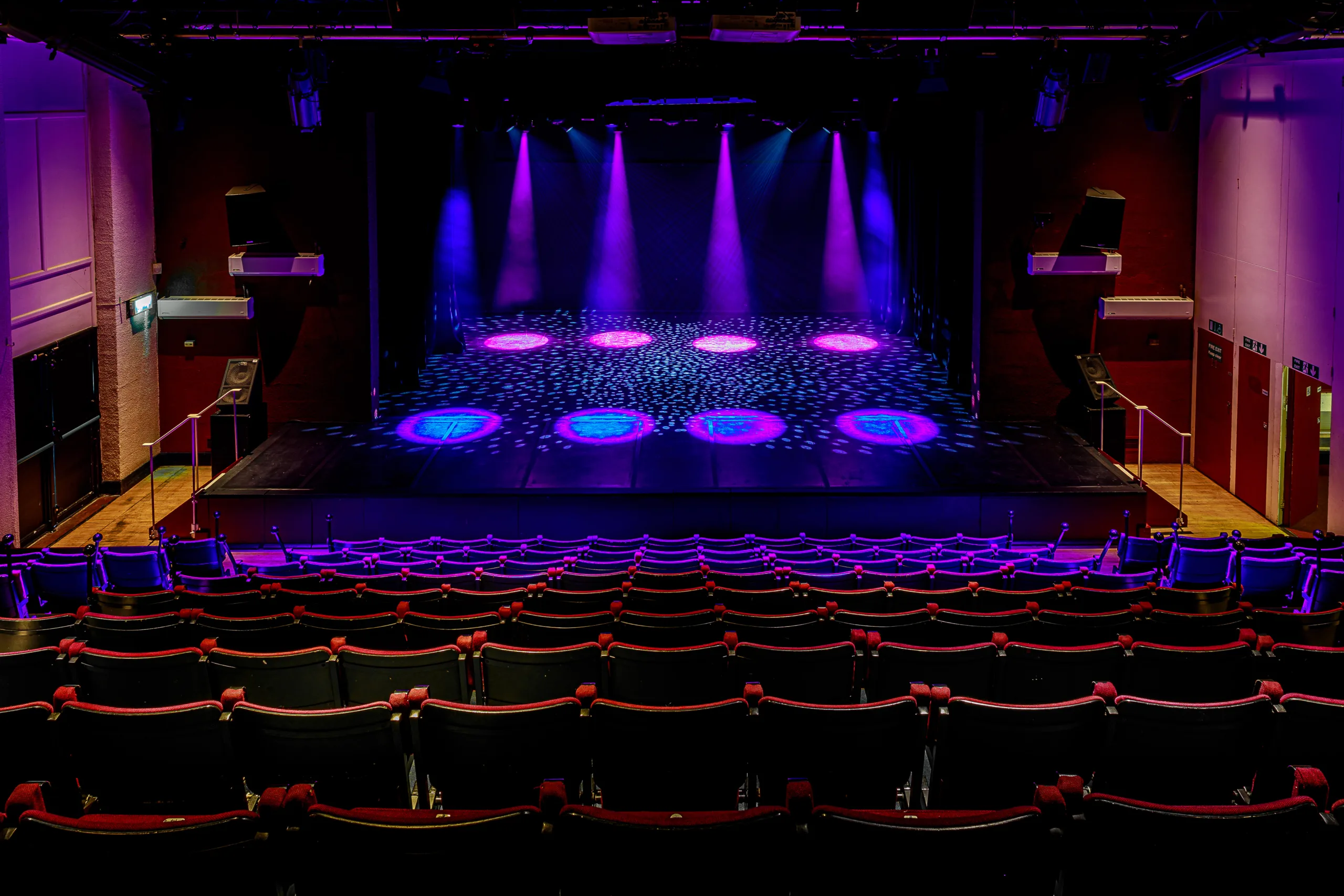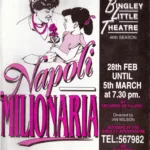Season 46 Play 5 – Napoli Milionaria by Eduardo De Fillippo
Directed by
Cast
Amalia Jovine – Jan Darnbrough
Maria Rosaria – Laura Campbell
Amedeo – Kevin Moore
Donna Peppenella – Vicky Vigrass
Adelaide Schiano – Janet Smith
Federico – Antony Howley
Errico – Haydn Cavanagh
Peppe ‘the jack” – lan Wilkinson
Ricardo Spasiano – Laurie Toczek
Sergeant Ciappa – Harry Chapman
Franco – Jeff Peacock
Pascalino – Ben Pickin
Assunta – Belinda Smith
Teresa – Phillipa Moore
Margherita – Kathy Espert
Wine Man – John Jamieson
Doctor – Phil Holbrough
Policemen – Robert Rushton, John Jamieson
Donna Vincenza – Nadine Walker
Rita ( Rituccia) – Victoria Moore
Guest – Cindy Haigh
Synopsis
Napoli Millonaria presents a rich pageantry of life in the back streets of Naples in 1942-44. Amalia, a practical woman of the people, keeps her family afloat during the second world war by her activities on the black market, much to the disapproval of her law-abiding husband. But as post liberation euphoria dies we see the toll it has taken on the morals of the people. In places the play is riotously farcical, in places deeply moving in its portrayal of ordinary people dehumanised by wartime profiteering.
Directors Notes
Eduardo de Filippo, born in Naples in 1900, was a child of a noted playwright. At fourteen he was a full time professional actor in his father’s company. Apart from a period of army service in the Great War, he worked in the theatre until his death in 1984.
His first play was performed in 1920. From then on so busy was he as actor,director and writer that he complained of rarely seeing other writers’ plays though he did manage to see and work for Pirandello.
The translator, Peter Tinniswood, wants Napoli Milionaria played with a regional English accent and definitely not in ‘mocka Italiana’. Is there in England a region as different from the rest of England as Naples is from the rest of Italy? His answer: Liverpool – he comes
from there – hence the Liverpool accents. The play is firmly set in wartime Naples, however.
I am grateful for their hard work to stage manager, designer, scene builders, wardrobe – and especially props (their search for genuine wartime Italian has been untiring) – and the actors, too. All the roles, from the largest to the least, have proved interesting, challenging,
dramatic and exciting to rehearse.
We hope you’ll share in our excitement.


